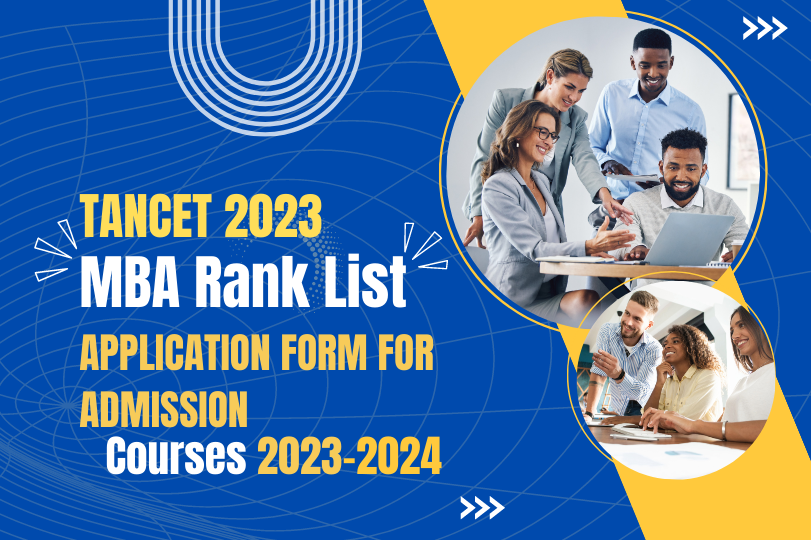
In today's competitive job market, climbing the corporate ladder and transitioning from an employee to an executive can be a daunting task. Many professionals find themselves seeking opportunities to accelerate their career growth and stand out from the crowd. One proven path to success is pursuing a Master of Business Administration (MBA) degree. An MBA equips individuals with a comprehensive set of skills and knowledge that can propel their careers forward and open doors to executive-level positions. In this article, we will explore how an MBA can be a transformative tool for professionals aspiring to reach the top echelons of the business world.
Understanding the MBA Advantage:
The MBA degree offers numerous advantages that can fast-track an individual's career progression. Firstly, it provides a solid foundation in various business disciplines such as finance, marketing, operations, and strategy. This multidisciplinary knowledge allows professionals to approach complex business challenges from a holistic perspective, making them well-rounded leaders capable of making informed decisions.
Secondly, an MBA program offers ample networking opportunities. Interacting with classmates, faculty, and industry professionals allows individuals to build a strong professional network, which can be invaluable for accessing job opportunities, mentorship, and guidance throughout their careers.
Additionally, most MBA programs emphasize experiential learning through internships, consulting projects, and case studies. These hands-on experiences provide real-world exposure, allowing individuals to apply theoretical concepts to practical business situations. Such experiences enhance problem-solving abilities and critical thinking skills, essential qualities for executive-level positions.
Enhancing Leadership and Strategic Thinking:
One of the primary objectives of an MBA program is to develop effective leaders. Through specialized courses and leadership development programs, students learn how to inspire and motivate teams, manage conflicts, and drive organizational change. These leadership skills are vital for executives who are responsible for shaping the direction of a company and achieving its goals.
Furthermore, an MBA curriculum emphasizes strategic thinking. Students learn how to analyze market trends, identify growth opportunities, and formulate business strategies that create a competitive advantage. Executives must possess a strategic mindset to navigate the complexities of the business landscape, make sound business decisions, and drive sustainable growth.
Unlocking Career Opportunities:
Moreover, an MBA provides a platform for career switchers. Professionals from diverse backgrounds can leverage the skills acquired during an MBA program to transition into new industries or functional areas. The comprehensive education and network developed during the program can bridge the gap and help individuals successfully navigate a career pivot.
Eligibility Criteria
While an MBA can be a game-changer for your career, it's important to understand the eligibility criteria before embarking on this educational journey. The specific requirements may vary depending on the business school and program you choose, but here are some common criteria to consider:
Academic Qualifications: Most MBA programs require applicants to hold a bachelor's degree from an accredited institution. While there is no specific field of study required, a strong academic background, especially in business-related subjects, can be advantageous.
Work Experience: Many MBA programs prefer candidates with relevant work experience. This requirement ensures that students can contribute to class discussions and bring real-world insights to the table. The minimum work experience required can range from 2 to 5 years, depending on the program.
Standardized Tests: Most MBA programs require applicants to submit scores from standardized tests such as the Graduate Management Admission Test (GMAT) or the Graduate Record Examination (GRE). These tests evaluate your analytical, verbal, and quantitative skills.
Letters of Recommendation: Business schools often require applicants to submit letters of recommendation from professional or academic references who can attest to their qualifications, skills, and potential for success in the program.
Statement of Purpose: A well-written statement of purpose or essay is typically required to understand your motivation for pursuing an MBA and your career goals.
English Language Proficiency: For non-native English speakers, demonstrating proficiency in English through tests like the Test of English as a Foreign Language (TOEFL) or the International English Language Testing System (IELTS) may be necessary.
It is essential to thoroughly research the specific eligibility criteria of the MBA programs you are interested in, as requirements may vary. Meeting these criteria will ensure that you are well-prepared and eligible to apply for the MBA program of your choice, setting you on the path to accelerate your career and transition from an employee to an executive.
Career/Scope
Earning a Master of Business Administration (MBA) degree can significantly expand career opportunities and propel professionals from being employees to executives. An MBA equips individuals with a diverse skill set and knowledge base that is highly valued in the business world. Here are some of the career scopes and paths that become available with an MBA:
Executive Leadership Positions: An MBA provides a solid foundation for aspiring executives. Graduates can pursue top-level management roles such as Chief Executive Officer (CEO), Chief Financial Officer (CFO), Chief Operations Officer (COO), or Chief Marketing Officer (CMO). These positions involve strategic decision-making, leading teams, and shaping the overall direction of an organization.
Entrepreneurship and Startups: Many MBA graduates choose to become entrepreneurs and start their own ventures. The comprehensive business education and understanding gained during an MBA program give individuals the skills and knowledge necessary to launch and manage successful businesses. The program also provides networking opportunities with potential investors, mentors, and fellow entrepreneurs.
Management Consulting: Consulting firms highly value the analytical and problem-solving abilities honed during an MBA. Graduates can pursue careers in management consulting, working with a variety of clients to solve complex business challenges, optimize operations, and drive organizational transformation.
Business Development and Strategy: MBA graduates are often sought after for roles in business development and strategic planning. These positions involve identifying growth opportunities, formulating market entry strategies, analyzing industry trends, and forging strategic partnerships to drive business growth.
Financial Services: The finance industry offers numerous career opportunities for MBA graduates. With their strong financial acumen and understanding of investment strategies, graduates can pursue roles in investment banking, private equity, venture capital, asset management, or corporate finance.
Global Business: In an increasingly interconnected world, MBA graduates with a global perspective are in high demand. They can work in multinational corporations, or international organizations, or pursue careers in international trade and business development, leveraging their cross-cultural understanding and global business expertise.
Non-profit and Social Impact: MBA graduates who are passionate about making a positive social impact can pursue careers in the non-profit sector or social enterprises. These roles involve leveraging business acumen to address social and environmental challenges and create sustainable change.
These are just a few examples of the broad career scope available to MBA graduates. The versatility and prestige of an MBA degree open doors to a wide range of industries and sectors, providing opportunities for professional growth, increased responsibility, and higher earning potential. By acquiring the knowledge, skills, and network offered by an MBA program, professionals can accelerate their careers and make the transition from being employees to becoming successful executives in their chosen fields.
Conclusion: Transitioning from an employee to an executive requires dedication, ambition, and the right set of skills. Pursuing an MBA can be a transformative step in accelerating career growth and positioning oneself for success at the highest levels of business. By offering a well-rounded education, fostering leadership capabilities, and unlocking a multitude of career opportunities, an MBA equips individuals with the tools they need to reach their full potential as executives. So, if you aspire to lead organizations, drive innovation, and make a lasting impact, consider embarking on an MBA journey and take a decisive leap towards a rewarding executive career.
Related News
View AllRelated Articles
View AllTrending Articles
View All-

GMAT 2023: Registration, Dates, Eligibility, Scholarship, Syllabus, and Exam Pattern
Jul, 19, 2023 Read More -

NMAT 2023: Save the Dates Registration, Exam Pattern, Syllabus and Selection
Jul, 18, 2023 Read More -

Cracking CAT 2023: Essential Guide to Exam Dates, Notification, Registration, and Syllabus
Jul, 17, 2023 Read More























 back
back